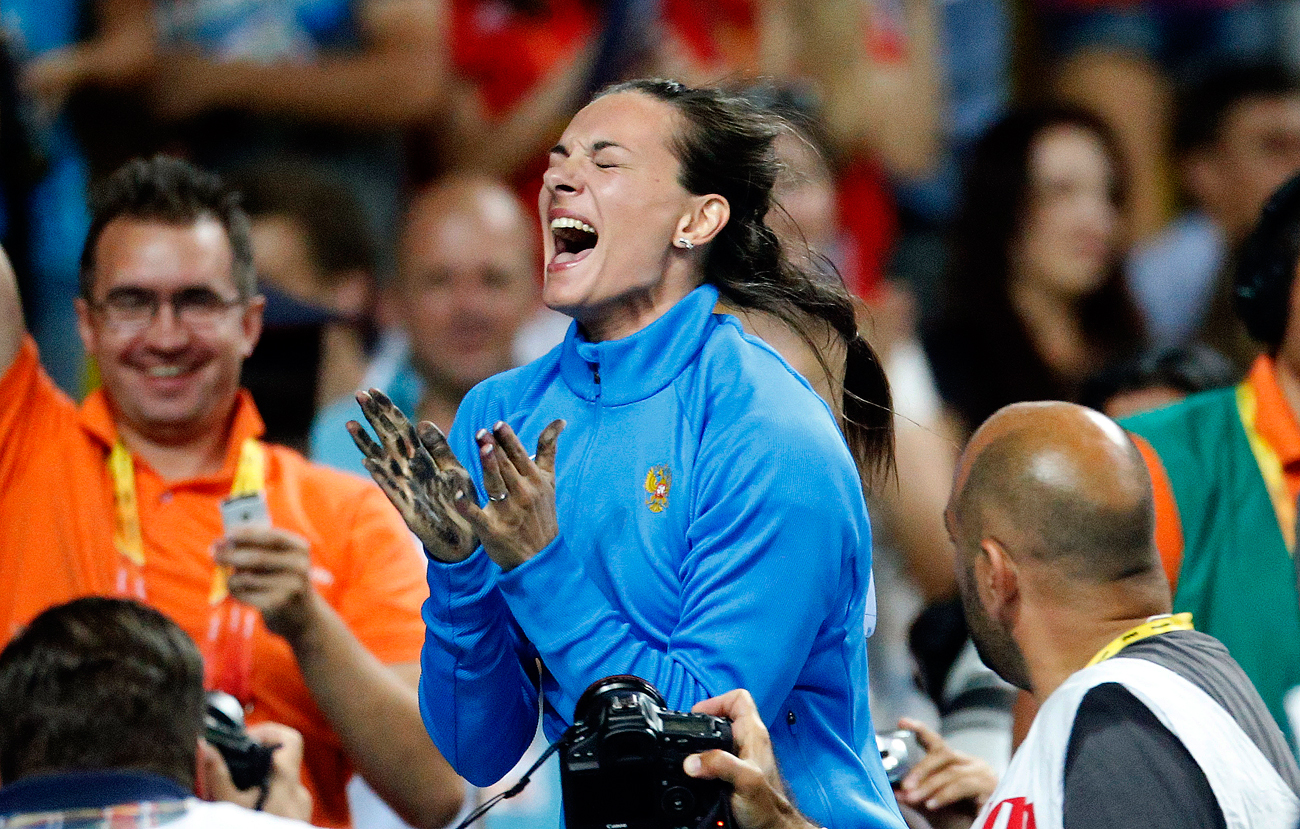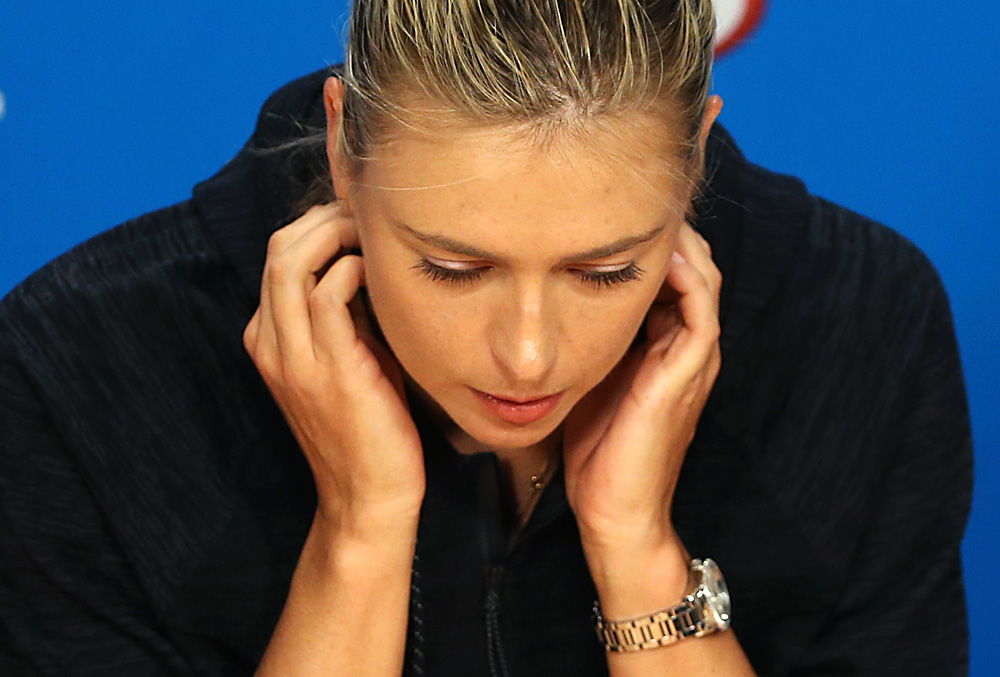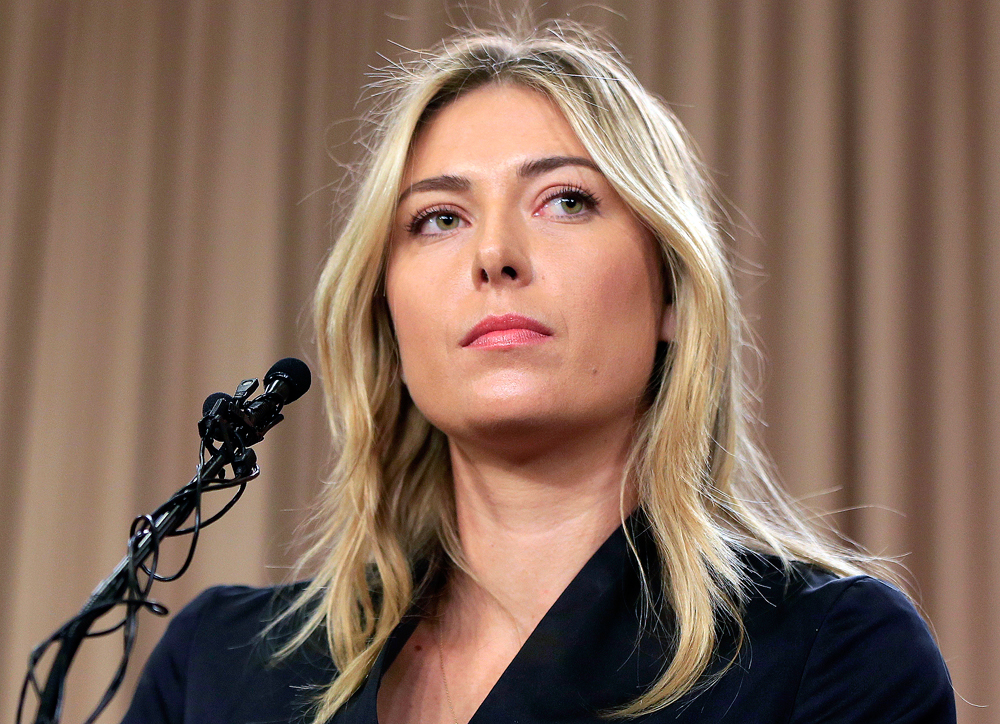Justice will have been done if Russia is banned from the Olympics

Pavel Kopachev and Alexei Avdokhin: "All are bound together by doping – that's why all are silent." Photo: Russia's Yelena Isinbayeva celebrates winning the gold medal in the women's pole vault final at the World Athletics Championships. Source: AP
Like millions of Russians, we want to see our best athletes at the Olympics in Rio: track and field athletes Sergei Shubenkov and Yelena Isinbayeva, fighter Bilyal Makhov and tennis player Svetlana Kuznetsova.
We believe that honest athletes should not suffer because of the dishonest. Perhaps, the avalanche of doping scandals involving Russia is 90 percent politics. But the remainder is our fault. And it is important to talk about this fault.
Now is perhaps the best time to change Russian sport. It is a chance given to us by the "bloody West." We must take advantage of this chance; of course, if we understand the scale of our problems.
The Russian sports system is not trusted in the world. And we have deserved such an attitude.
In Russia, athletes caught doping are not outcasts, but martyrs
Society justifies and even encourages doping athletes in Russia. Race-walking coach Viktor Chegin took medals, received awards and had the state Olympic training centre named after him, while everyone turned a blind eye to the fact that 24 students of the wonderful coach Chegin were caught at different times for doping. Have the athletes and coach returned the awards, prize money or cars received from the state? No, they returned only the "unfair" medals that they wanted to win at any cost.
What is even more amusing is that in the midst of a doping scandal, walkers wrote a letter to the Russian President in support of the coach. How should the world have reacted to the fact that Russian athletes supported a coach with such a background?
In Russia, everyone is bound together by doping
The athletes caught for doping deny their guilt, refuse to name anybody and later get a good job or money for their silence. They are all are bound together by illegal drugs. That is why they are all silent, there are no investigations, no public criticism. No one breaks this vicious circle. No one wants to become an outcast from the system.
Billions are pumped from the budget into our elite sport. More than 1.5 billion rubles ($23.8 million) was additionally allocated to prepare athletes for the Olympics in Rio due in August. The state pays for their fees, accommodation and meals. It gives athletes with apartments, cars, and millions for their victories.
Knowing about the crazy bonuses, athletes are forced to cheat. Doping is a means to achieve success, and there is no alternative to it. Many admit off the record: "This is the main chance, and they promised to solve our problems."
We are very sorry for the athletes who have managed to preserve their "purity," but they were preparing for Rio at the state's expense. Athletes are inseparable from the system. If the government gets punished, everyone answers for it.
Half measures
The Russian media sees only politics in the WADA reports. Yes, it is true to a large extent, but as long as we seek only an external enemy, nothing will change in our sport. It is not Pound, Zeppelt, McLaren or Bach that are guilty of the problems. It is Russian officials who are guilty, with their eagerness to look solely for conspiracies by foreign enemies, while the state ignores the violations within the country.
Grigory Rodchenkov was accused in 2011 of an organized trade in illicit drugs, but he eventually continued to head the anti-doping centre and even received an award for the Games in Sochi. When Rodchenkov was needed (he is a great chemist), the state turned a blind eye to his sins.
When, in the fall of 2015, Rodchenkov was accused of destroying almost 1,500 samples from sportspersons, the state did nothing; it just technically removed him from his post. And only when the doctor went to the U.S. and began to work with WADA, and when The New York Times published a sensational investigation, did the Russian Investigative Committee open a criminal case against Rodchenkov, on June 18, six months after the first reports.
These half-hearted measures are visible everywhere. Even now, after Richard McLaren's sensational report, the Deputy Sports Minister Yury Nagorny gets suspended temporarily (and in a demonstrative way), but his direct supervisor – Sports Minister Vitaly Mutko – is in place.
Russian sports: a top with no base
Some may find it blasphemous, but the probability of missing the Rio Olympics altogether is a good opportunity to look at Russian sports with different eyes.
Elite professional sport is just the tip of the pyramid. Much more important is what lies beneath it: the interest of the audience, accessible fields and gyms, free sports clubs, knowledgeable coaches and large scale involvement. When the pyramid has no base, medals and victories are not the logical outcome of the built system but the sole goal, to be achieved at all costs.
As for doping, it is high time to decide: should we fight it or merely put on the semblance of a fight?
Pavel Kopachev and Alexei Avdokhin are journalists for the sports.ru news website.
The article has been abridged. The full version in Russian is available on the sports.ru website.
The opinion of the writer may not necessarily reflect the position of RIR or its staff.
All rights reserved by Rossiyskaya Gazeta.
Subscribe
to our newsletter!
Get the week's best stories straight to your inbox

